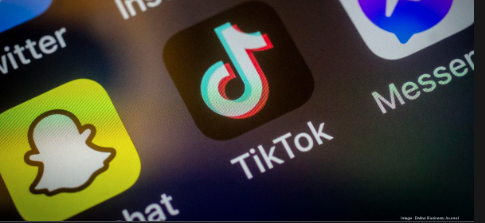Maintaining an Innovative Company Culture
By James Pruitt, Senior Staff Writer
The race to innovate has propelled itself to center stage as technology has advanced. Companies need to constantly rebuild themselves to stay competitive. In other words, companies should deeply integrate forward-thinking mindsets into their cultures. So, what does this mean?
Twenty-five years ago, a fleet of internet-capable computers could cost several thousand dollars each. Now, a small company can buy these computers in bulk for hundreds per workstation. But in today’s economy, Veteran Business Owners need to consider the cost-effectiveness of such an investment.
Consider the industry. These days, many tech-centered businesses may really need fast, up-to-date computers to simply get the day’s work done. Other companies may need to keep closer track of innovations in their own fields. Such companies may include restaurants, clothing manufacturers, and machine shops. Depending on their needs, such companies may even benefit from saving money on expensive computer equipment, while concentrating on the latest innovations in their own fields.
As a bottom line, companies in these times need to keep track of industry trends. In fact, to stay competitive, most companies need to integrate forward-looking mindsets into their company culture. Veteran Business Owners can implement the following mindsets in order to take their companies down this path:
1. Get Ready for Cross-Industry Partnerships
Vastly different companies sometimes have operations that complement each other. In many cases, one business may have discovered a new methodology that might benefit a separate one. Consider, for example, delivery methods. Maybe a business in one field has begun to use drones or self-driving cars. One company could even act as a supplier for the other, and hence vertically or horizontally integrate the operations of each. Finally, consider that businesses in different fields might not be in competition. As a bottom line, remember the importance of networking for reaching the best outcomes for each party.
2. On a Similar Note, Never Forget the Power of Collaboration and Partnership
Competition can provide us with the drive to press forward. However, sometimes extreme rivalries between companies might prevent the spread of new ideas. Extreme competition may be toxic. It is true that the legal system enforces noncompete covenants and antitrust laws, and for good reason. However, Veteran Business Owners should trust themselves and each other to join forces in many cases where partnerships might benefit each. Your own method may work for you, but in some cases, teamwork with others in your industry may yield the best fruit.
3. Some Industries May Completely Disappear Or Even Morph to the Point Where They Are No Longer Recognizable
Remember the metaphor of the frog boiling so slowly in a pot that it doesn’t understand it’s being cooked? Business owners should keep in touch with trends in their field and understand when and why they need to innovate. Time flies, especially for busy people. Your field could gradually disappear absent a willingness to innovate. Even within many of our own lifetimes, at one point we had telegrams, then we had FedEx, then email.
Successful companies see trends and innovations as they arise and adapt accordingly. Those who stick their heads in the ground may find themselves boiled alive as advancing new technologies eat away at their core business.
4. Remember the Importance of Social Responsibility for Public Image
These days, companies need to stay aligned with changing ethical sensibilities. Businesses that fail on this front risk finding themselves in a two-front war. Customers may abandon their products even as governments start regulating them. The combined social forces could spell doom for a small business, regardless of what short-term opportunities may come their way. For example, don’t expect many new tobacco companies any time soon.
In conclusion, any business owner needs to stay “in touch” with the business environment surrounding them. New Veteran Business Owners most of all need to remain self-aware. The need for innovation can arise at any moment, so all of us need to contribute to company cultures that seep these forward-thinking concepts as deeply as possible into the souls of any new business.
Stay tuned for part two of this mini-series.
VAMBOA, the Veterans and Military Business Owners Association hope that this article has not only been valuable but provided some unique perspective. We work hard to bring you important, positive, helpful, and timely information and are the “go-to” online venue for Veteran and Military Business Owners. VAMBOA is a non-profit trade association. We do not charge members any dues or fees and members can also use our seal on their collateral and website. If you are not yet a member, you can register here:
https://vamboa.org/member-registration/
We also invite you to check us out on social media too.
Facebook: https://www.facebook.com/vamboa
Twitter: https://twitter.com/VAMBOA
Do not forget that VAMBOA members receive significant discounts on technology needs. Check them out here: https://vamboa.org/dell-technologies/












